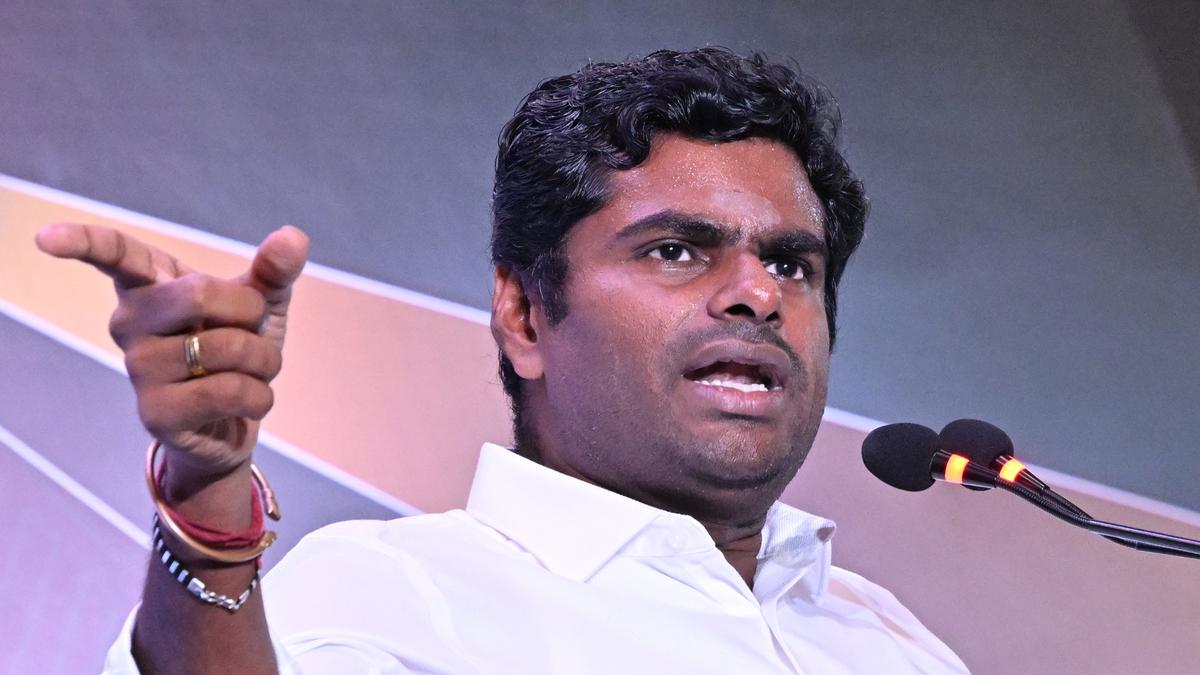 |
|
The Madras High Court's decision to transfer the investigation of the Kallakurichi hooch tragedy from the Crime Branch-Criminal Investigation Department (CB-CID) to the Central Bureau of Investigation (CBI) has sparked significant political reactions in Tamil Nadu. The tragedy, resulting in the deaths of 68 individuals due to the consumption of spurious liquor, has become a major point of contention between the ruling DMK and the opposition BJP. The BJP, led by its state president K. Annamalai, has consistently criticized the DMK government's handling of the incident, alleging administrative mismanagement and a lackadaisical approach to the investigation. Annamalai's welcoming of the High Court's order underscores the BJP's belief that the CBI, with its perceived greater independence and resources, is better equipped to uncover the truth behind the deaths and hold those responsible accountable. The transfer of the investigation reflects a growing lack of confidence in the state government's ability to conduct an impartial and thorough investigation, raising concerns about potential cover-ups or attempts to protect influential individuals involved in the illicit liquor trade.
The High Court's observations regarding the state police's failure to notice the widespread sale of spurious liquor further fuel the BJP's accusations of governmental negligence. Annamalai's statement asserting that the government's handling of the probe was lax and intended to protect the real criminals highlights the deep political divide over the tragedy's handling. The BJP's contention that the DMK government's actions represent a betrayal of public trust is a significant political charge, likely to escalate tensions between the two parties in the lead-up to future elections. The transfer to the CBI represents a significant setback for the DMK, suggesting a judicial acknowledgment of the shortcomings of the state-led investigation. This decision raises important questions about the effectiveness and impartiality of the CB-CID, particularly in high-profile cases with strong political undertones. The subsequent actions of the CBI will be closely scrutinized, with the public keenly awaiting the outcomes of the investigation to determine the culpability of individuals and organizations implicated in the tragedy.
The BJP's call for the state government to cooperate fully with the CBI investigation, rather than wasting taxpayer money on appeals, presents a strategic political move. By emphasizing cooperation, the BJP aims to portray itself as prioritizing justice and transparency over partisan politics. However, the DMK’s response to the court order and its level of cooperation with the CBI will be crucial in determining the trajectory of the investigation and the political fallout. If the DMK government actively obstructs the CBI's efforts, it could further damage its credibility and strengthen the BJP's claims of a cover-up. Conversely, full cooperation could potentially mitigate some of the political damage, although the very fact that the case has been transferred out of state hands represents a significant political blow. The Kallakurichi hooch tragedy serves as a stark reminder of the dangers of unregulated liquor trade and the need for effective governance to prevent such tragedies from occurring in the future. The outcome of the CBI investigation will not only determine the fate of those responsible but will also have profound implications for the political landscape of Tamil Nadu.
The case highlights the broader issue of illicit liquor trade in India and the systemic challenges in combating it. The scale of the tragedy and the apparent failure of state authorities to prevent it raise serious questions about the effectiveness of law enforcement and regulatory mechanisms. The incident has brought the issue to the forefront of public discourse, demanding a thorough examination of the processes and policies that allowed such a large-scale tragedy to occur. Moving forward, the CBI investigation needs to not only identify and prosecute those responsible for the immediate deaths but also delve into the deeper systemic issues contributing to the illicit liquor trade and its devastating consequences. This includes investigating possible corruption, collusion with state officials, and the broader lack of regulation that facilitated the distribution of spurious liquor. The subsequent recommendations and changes in policy will be crucial in ensuring similar tragedies are avoided in the future. The legal ramifications of this incident extend far beyond the immediate political battles between the DMK and the BJP; they have broader implications for the lives of ordinary citizens and the governance structures in place to protect them.
Ultimately, the success of the CBI investigation will depend not just on its investigative capacity, but also on the willingness of witnesses to come forward, the cooperation of state authorities, and the court's ability to ensure a fair and unbiased trial. The case presents a critical test of the Indian judicial system's capacity to deliver justice in the face of significant political pressure. Public attention will remain firmly focused on the progress of the CBI investigation, with hopes that the truth surrounding the Kallakurichi hooch tragedy will be revealed and justice served for the victims and their families. The long-term impact of this tragedy will extend far beyond the immediate legal and political consequences, serving as a case study for investigating illicit liquor trades and improving regulatory frameworks to prevent similar incidents in the future.
Source: Kallakurichi hooch tragedy: Annamalai welcomes Madras HC order transferring probe to CBI
